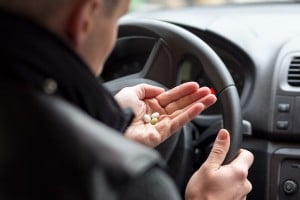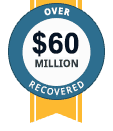What Happens If I Was Hit by a Drugged Driver?
 In most respects, a car accident case involving being struck by a driver who operated a vehicle under the influence of narcotics is similar to a case involving a drunk driver. The main difference generally revolves around the issue of how you prove the driver was drugged. If you were injured in a wreck with a drugged driver, call Silverman, McDonald & Friedman in Newark, Seaford, or Wilmington today.
In most respects, a car accident case involving being struck by a driver who operated a vehicle under the influence of narcotics is similar to a case involving a drunk driver. The main difference generally revolves around the issue of how you prove the driver was drugged. If you were injured in a wreck with a drugged driver, call Silverman, McDonald & Friedman in Newark, Seaford, or Wilmington today.
According to Mothers Against Drunk Driving (MADD), nearly 4,000 drivers die each year with drugs in their system. These number don’t include cases were the driver’s blood wasn’t tested. It doesn’t include cases where the victim was killed by a driver who had drugs in his/her system. Drugs than can cause a driver to lose control of a vehicle, to respond too slowly to emergencies, to drive aggressively, or to be impaired include (in addition to alcohol):
- Opioids
- Methamphetamine
- Cocaine
- Marijuana
- Prescription drugs
Many drugs cause extreme drowsiness. Some cause dizziness, anxiety, blurred vision, and other side effects.
It is not a defense for a drugged driver to state he/she had permission to use the drugs – such as with prescriptions. Most drivers who drive drunk had permission to drink. What drivers who take drugs or consume alcohol cannot do is drive while under the influence of these substances (legal or illegal).
The stages of a drugged driving car accident case
The basic steps in any car accident case are:
- Call the police. They will take everyone’s contact and insurance information. Law enforcement will focus first on clearing the vehicles from traffic and getting medical help for anyone who needs it. The police will speak with all the drivers and passengers about the accident. They will then examine and record where the accident happened and how it happened. If they suspect a driver was under the influence of narcotics, they may request that the driver submit to a blood or urine test to determine what drugs were in the system. Drivers in Delaware give their implied consent to these tests. Police can also obtain a warrant if necessary.
- Seek immediate medical help for any injuries. If victims are not taken to a doctor by an ambulance or other service at the time of the accident, they should seek care from an emergency room center or a physician as quickly as possible.
- Call a lawyer. Skilled lawyers will arrange for investigators to conduct their own examination as to the cause of the accident and to assess who should be held accountable. Lawyers will work with your doctors to document and understand the full extent of your medical injuries. The attorneys will also document and verity your lost income.
In drugged driving cases, any criminal charges usually proceed first. Skilled car accident lawyers work with the police to get all the all available evidence which could be used to confirm the driver was drugged at the time of the accident. In drunk driving cases, there is presumption that if a driver’s blood alcohol limit was .08 or more, then the driver drove while intoxicated. In drug cases, the results of a blood or urine test should confirm the types of drugs and the amount of the drugs in the driver’s system. There is no presumption test though in drugged driving cases.
It is not necessary to show a driver was drugged to win or settle a car accident case. What is necessary is to show the driver was negligent or careless. While the evidence of drugs may be useful, in most cases carelessness will be confirmed by reviewing many other factors. In many cases a drugged driving will be negligent because:
- The driver sped, ran through a red light, or violated a traffic law
- Failed to respond to emergency
- The way the accident happened suggests the drugged driver was responsible – for example, if the drugged driver struck your car in the rear or broadsided your vehicle
Unlike alcohol cases, generally only the driver and the owners of the vehicles are liable if the driver caused the crash. In alcohol cases, taverns and other vendors could also be liable.
There’s no excuse for drugged driving. Drivers should never operate a car while under the influence of narcotics or prescriptions. At Silverman, McDonald & Friedman, our Delaware drugged driver accident lawyers are ready to hold these irresponsible drivers and the owners of the vehicles involved accountable for any deaths that are caused and for any injuries to drivers, passengers, or bystanders suffer from. We demand payment for your pain and suffering, medical expenses, lost wages, and car damage. To discuss your case, phone us today at 302-888-2900 or fill out our contact form to schedule a free consultation.
Related:

Attorney Jeffrey S. Friedman joined Silverman, McDonald & Friedman in 2001. He graduated from Widener University School of Law, and is admitted to practice law in Delaware and Pennsylvania, and in several Federal Circuit courts. He areas of concentration include auto accident and workers’ compensation cases. Read more about Attorney Friedman here.

